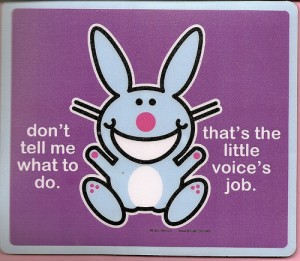I am writing this for one reason: far too many people tell me what to say, so instead of explaining to everyone, I’ll just give you this link. Please read.
The idea
The idea behind “person first language” is that you put the person first, for example: person with autism. This emphasizes the person and not the disorder. Fine. Or so I thought.
But then I heard from several (and by several, I mean a LOT) of “people with autism” who specifically told me that they prefer the term “autistic” because autism is very much a part of who they are and how they perceive the world. They accept it, they embrace it and they want to be known as such. Fine. Or so I thought.
Not every “autistic” feels that way. Some actually do prefer “person with autism” because they hate how much autism has made their life suck (their words, not mine, really). Fine?
For some education systems, the teachers are actually told to use “person first language” because that’s what some parents insist on and it’s best that the education system not aggravate the parents. Fine.
So which did you tell me to do?
Here’s the thing. If I have dozens, even hundreds of “autistics” tell me to call them “autistics” because it’s what they want and then I have dozens, even hundreds of parents tell me to use “person with autism” because it’s what they want…. who do I side with?
Nobody.
I don’t take sides. First of all, it’s just ridiculous anyway. Seriously, is this what we spend our time on? Is this really a reason to get mad at each other? Can something this childish really begin to divide a community?
Well, no. The truth is, there’s a third group of people. They’re the “I don’t care” group. I love this group.
For most “autistics”, which are “people with autism”… they don’t care. Actually, they’d prefer you call them by their name. They’re more likely to respond. Further more, person, people, person of humanitarian decent… you know, what ever. It really doesn’t much matter.
For most parents of “autistic” children, which are “children with autism”… they don’t care. Again, using their name is generally the best option. But those parents really don’t mind how you refer to their children so long as you do it politely, nicely and with respect. They are their children after all.
I fall into the “I don’t care” group myself but in a way, I do care. I mean, if someone tells me they prefer one or the other, I’ll do my best to use that one method with that one person. I respect their wishes. But if that person is in a group of people, all of whom have various wishes or don’t care…. well, be ready for a mixed bag of terminology.
Don’t tell me how to speak, I don’t tell you how to dress
 Quite frankly, I find it rude to tell me how I am to refer to my own child. Who are you anyway?
Quite frankly, I find it rude to tell me how I am to refer to my own child. Who are you anyway?
When my son comes to that point, if he does, and he tells me he prefers one way or another… you can bet your life I’ll stick to that one term…. with him. I’ll still use another term with another person if it’s what that person prefers.
In the mean time, until he tells me, or others tell me which they prefer, I’ll use the term that best fits the sentence. Because “the journey of my autistic child” sounds far better than “the journey of my child of which has autism”. That can’t be right.
Anyway, if you’re reading this because you’ve told me what to say, please visit the closest Walmart, buy some overalls, cowboy boots, pink shirt with the ruffles and the biggest hat you can find and wear that. Because I feel it’s only fair that you do something for me too.
It’s not that I don’t value your wishes, it’s not that I don’t understand exactly where you’re coming from. I do. And if the entire world said in one unanimous voice that it should be one way… then I would abide by that.
But it’s not that simple. I don’t make one group of people mad for the sake of making another group happy. There’s far better things to focus on that can benefit all people than this.
Thanks for reading.
 Now, I’m sure you’ve all heard the “person first language” thing, where some people insist that you use “person with autism” rather than “autistic.” I’ve written about it before in articles such as The last word on “person first language” where I explain why I use the terminology that I use.
Now, I’m sure you’ve all heard the “person first language” thing, where some people insist that you use “person with autism” rather than “autistic.” I’ve written about it before in articles such as The last word on “person first language” where I explain why I use the terminology that I use.











